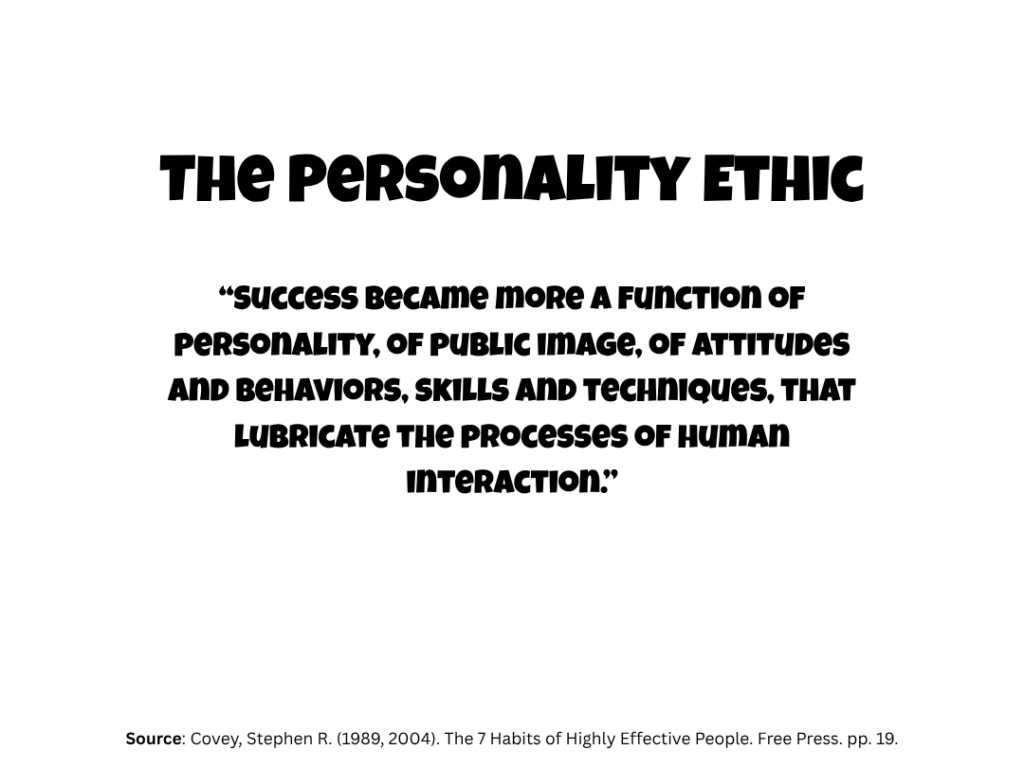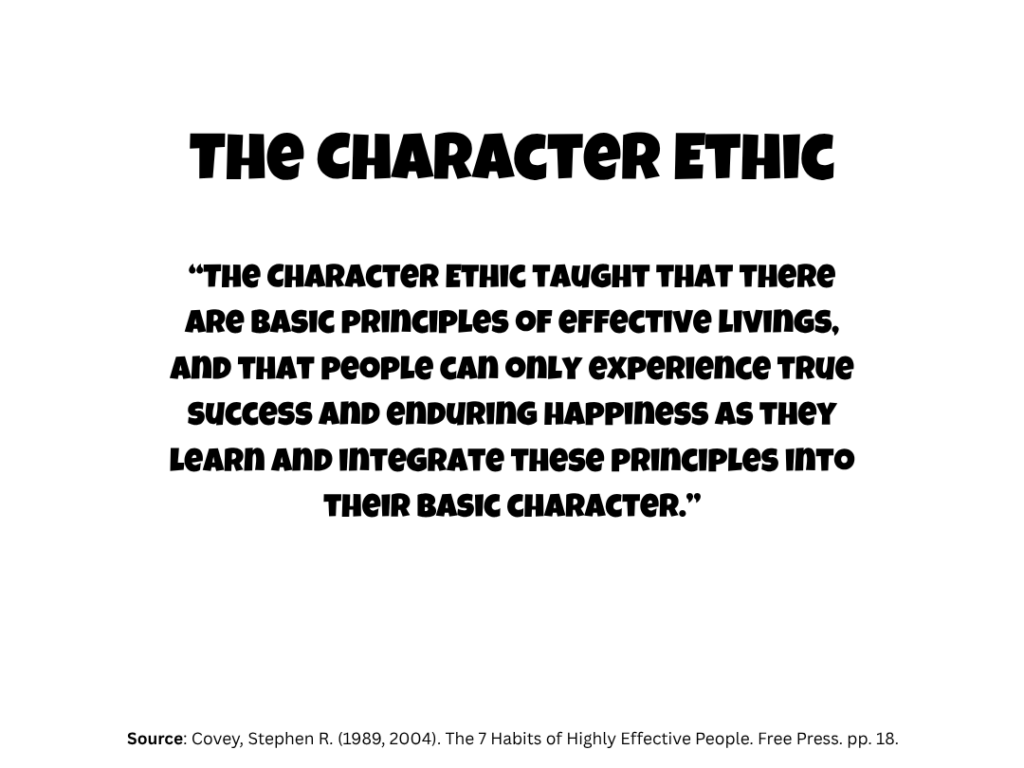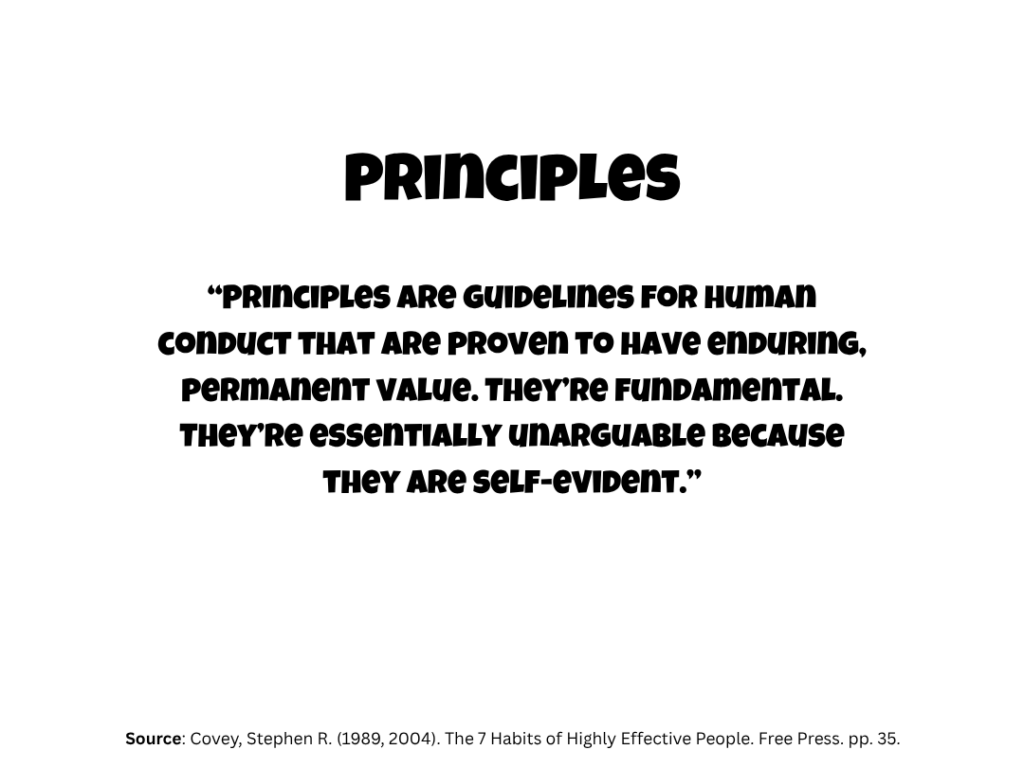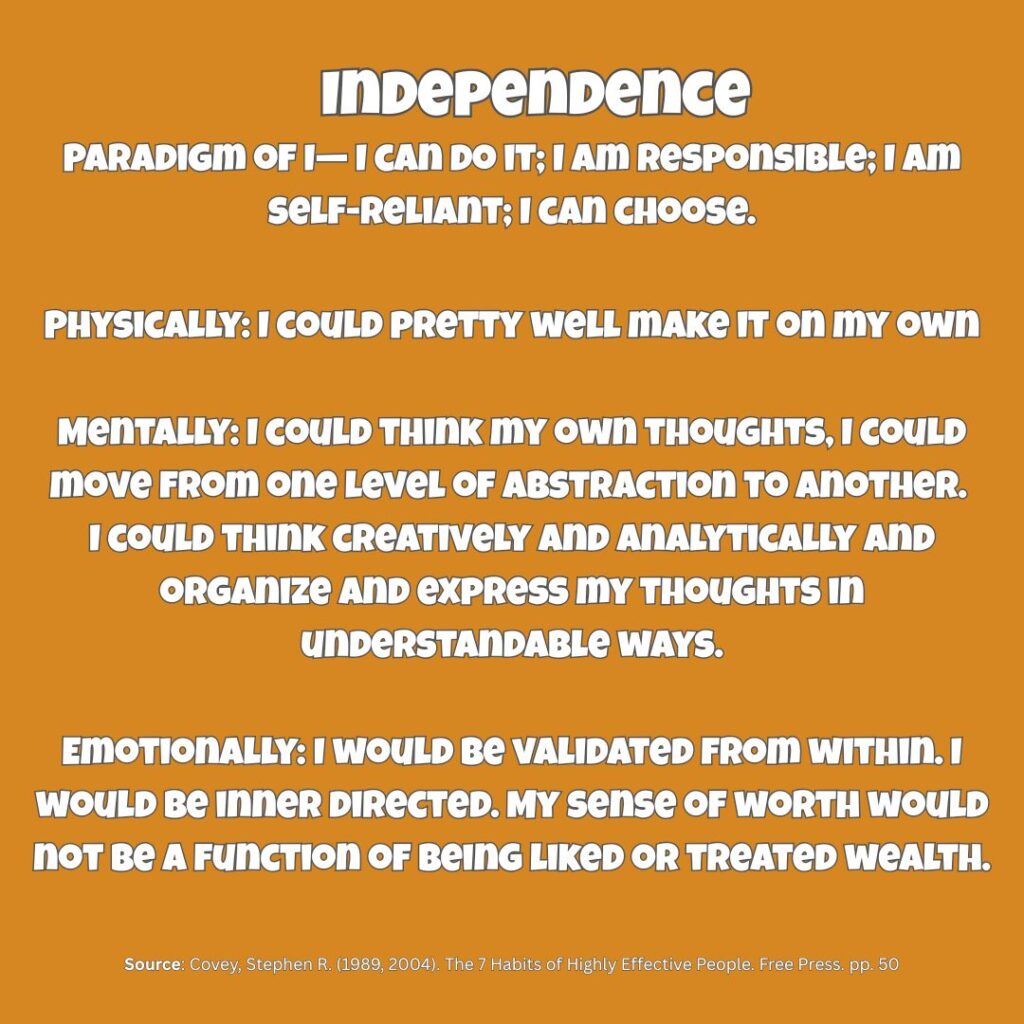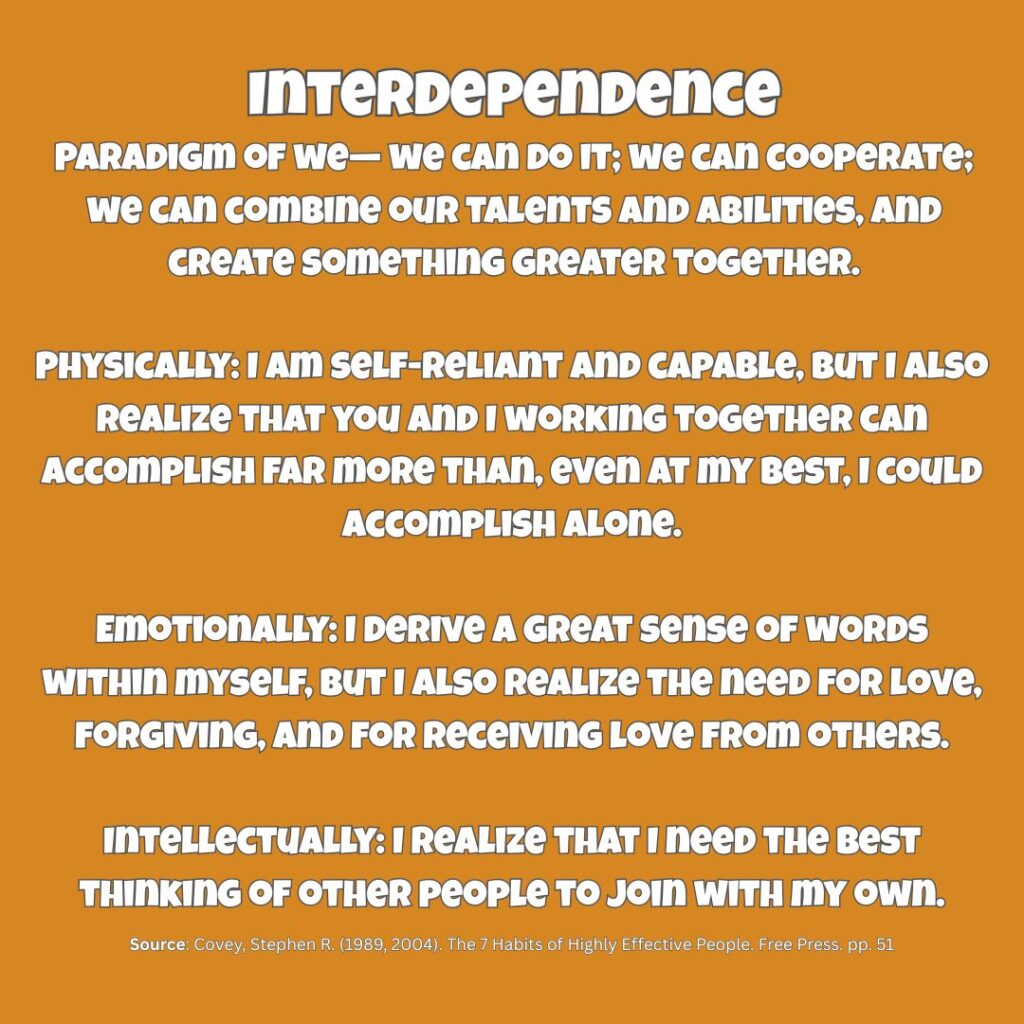Almost all the literature in the first 150 years or so focused on what could be called the Character Ethic as the foundation of success
Things like integrity, humility, fidelity, temperance, courage, justice, patience, industry, simplicity, modesty and the Golden Rule
The Character Ethic taught that there are basic principles of effective living, and that people can only experience true success and enduring happiness as they learn and integrate these principles into their basic character. (18)
Based on the fundamental idea that there are principles that govern human effectiveness—natural laws in the human dimension that are just as real, just as unchanging and unarguable ’there’ as laws such as gravity are in the physical dimension. (32)
Principle are like lighthouses. They are natural laws that cannot be broken. (33)
For example, the principle of fairness, out of which our whole concept of equity and justice is developed. (34)
Other examples would include integrity and honesty. They create the foundation of trust which is essential to cooperation and long-term personal and interpersonal growth.
Another principle is human dignity. The basic concept in the United States Declaration of Independence bespeaks this value or principle.
Another principle is service, or the idea of making a contribution.
Also, the principle of quality, or excellence
The principle of potential, the idea that we can grow and develop and release more and more potential, develop more and more talents.
Highly related to potential is the principle of growth—the process of releasing potential and developing talents, with the accompanying need for principles such as patience, nurturance, and encouragement.
Covey, Stephen R. (1989, 2004). The 7 Habits of Highly Effective People. Free Press. pp. 18, 32, 33, 34.
The character ethic taught that success and happiness is our experience when we live by principles we integrate into our character. Things like integrity, humility, fidelity, temperance, courage, justice, patience, industry, simplicity, modesty, and the Golden Rule. It’s based on the idea that human effectiveness is based on principles. These principles are natural laws and they’re just as real as fundamental laws of physics such as gravity.
There’s the principle of fairness of equality and justice. Other principles include integrity and honesty that facilitate trust which is necessary to personal and interpersonal growth.
Another principal is service or making a contribution. Also the principle of quality, or excellence. There’s also the principle of potential, the idea that we can grow and develop more and more skills and talents. The principle of growth is the releasing of potential and talents that are developed, and with this process, principles such as patience, nurturance, and encouragement are needed.

